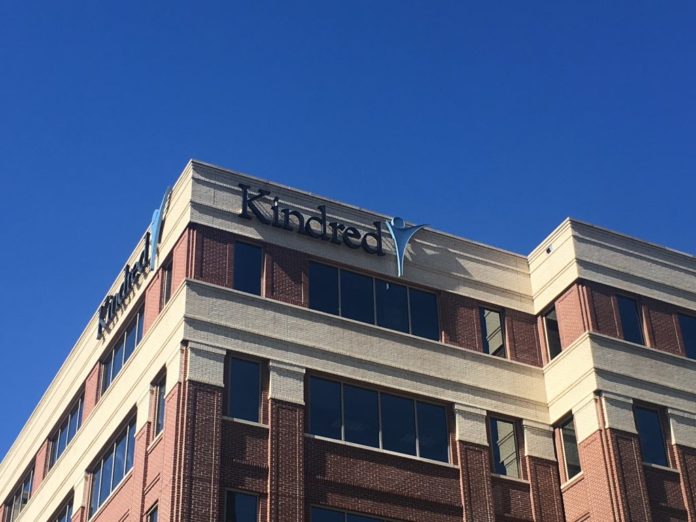Louisville-based Kindred Healthcare (NYSE: KND) is undergoing changes, and its emerging profile will stand out as the largest provider of home health care services in the nation with leaner operations. After divesting its remaining skilled nursing facility (SNF) assets, the company’s new position heading into 2018 is one that is arguably more financially sound, but the coming year might be more about keeping home health on track rather than growing.
Kindred, which has been a major player in the SNF industry, has been divesting its skilled nursing assets since BM Eagle Holdings, a joint venture led by affiliate of BlueMountain Capital Management, announced it was purchasing Kindred’s portfolio for $700 million in July.
By the end of the third quarter of 2017, Kindred had divested 68 of the 89 SNFs in its portfolio, CEO Benjamin Breier said during the company’s quarterly earnings call in November. Nearly all the assets are expected to be transferred by the end of the year.
Market Position
Without the SNF business, Kindred will be a stronger financial position, some argue.
“The skilled nursing industry is the one that is being seized from every side, from the regulatory [side], reimbursements and occupancy,” Rich Tinsley, president of health care mergers and acquisitions advisory firm Stoneridge Partners, told Home Health Care News. “The SNF industry is just a disaster. They are getting rid of their most consuming problems to focus on the part of the business that is already growing and is portably more profitable.”
In addition to being freed up from its struggling skilled nursing assets, Kindred will also reduce its leverage, improving its financial wellbeing, according to Frank Morgan, analyst at RBC Capital Markets.
“They probably, from a financial standpoint, will be stronger as an enterprise,” Morgan told HHCN. “Looking at the company in its entirety, it will have less leverage by not being the nursing home business.”
Looking ahead, Kindred could in a position to continue acquiring and expanding its home health and hospice presences after a competitive 2017.
“It’s going to be competitive,” Tinsley said of the 2018 market. “From our perspective, it’s interesting to look at the national companies—they are only as good as the local market.”
However, not everyone agrees Kindred will be looking ahead to make major deals next year. Instead, the company will likely focus on steadying its volume and admissions growth for Kindred at Home, its home health business, which suffered after hurricanes plowed into the U.S. in the second half of the year.
“They want to get things back on track and work on the impact of volume from the hurricanes, making sure they stay on course with operations from the home health care side of the business,” Morgan said. “They’ve worked their way through this major financial re-engineering of divesting nursing homes, so they’ got to right-size the corporate general and administrative to match the smaller company. It will be year of finishing up, tidying up and focusing on what they have, as opposed to going out and wildly growing.”
Kindred’s partnering strategy
While Kindred is getting out of the operator game in some aspects, it has continued to build up strong partnerships with other health care providers, inducing hospitals, health systems and other SNFs, to develop a continuum of care across its own operations and beyond.
“They still have a lot of other post-acute care assets, long-term acute care hospitals (LTACs), inpatient rehabilitation facilities (IRFs), and they are a huge player on the home health side,” Morgan said. “The reality is that when they first announced they were getting out of the SNF business, they talked about forging relationships with other provers in skilled nursing. If they need nursing home capabilities, they can find it.”
This strategy will enable Kindred to become better integrated for alternative payment models. Specifically, Breier stated that the company could pursue managed care and Medicare Advantage opportunities in some states on the company’s third quarter earnings call. Other models are also on the table.
“It sets them up well for bundled payments, ACOs,” Tinsley said. “[They will be set up] to be relevant in each market to provide all levels of care.”
Written by Amy Baxter




